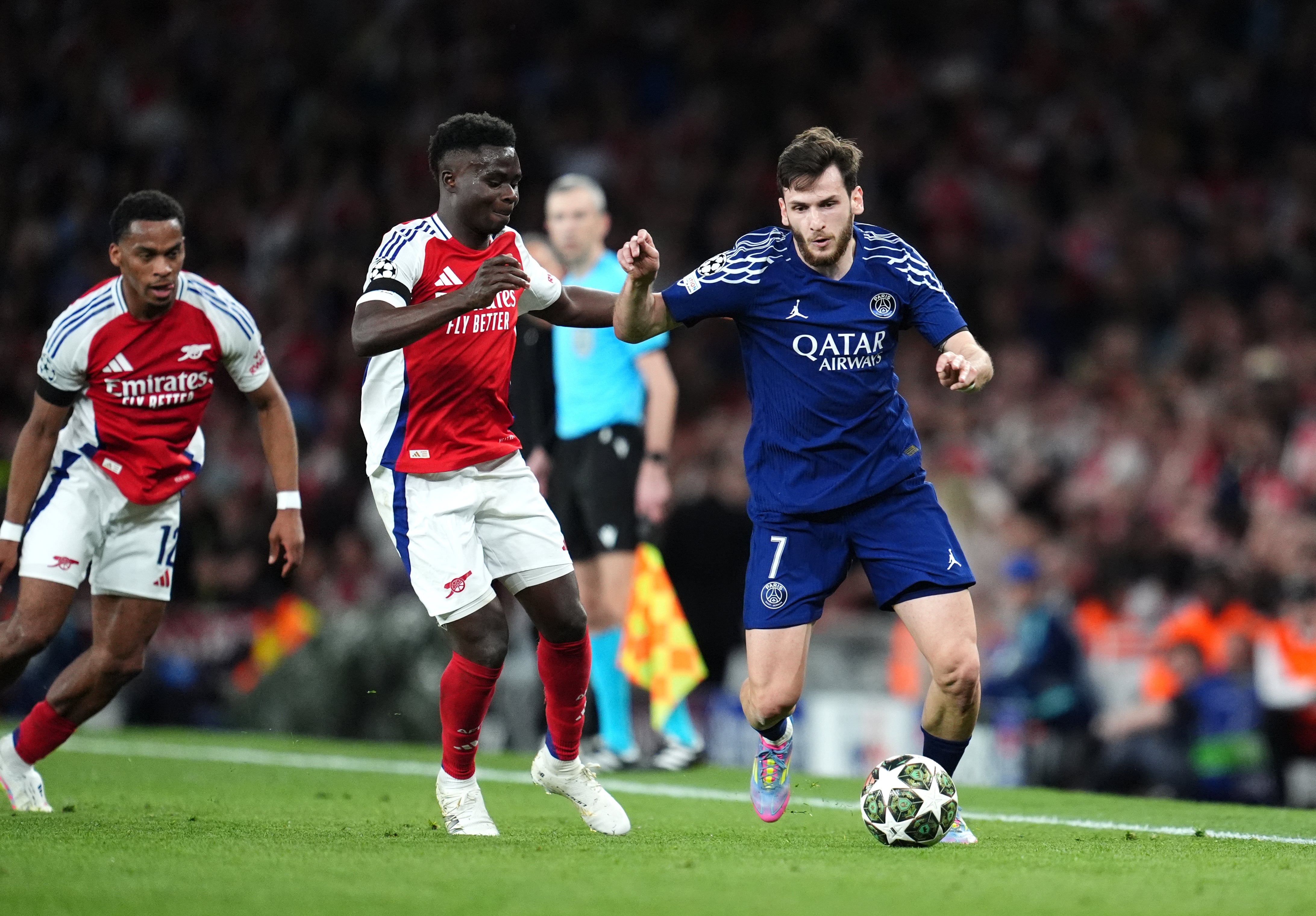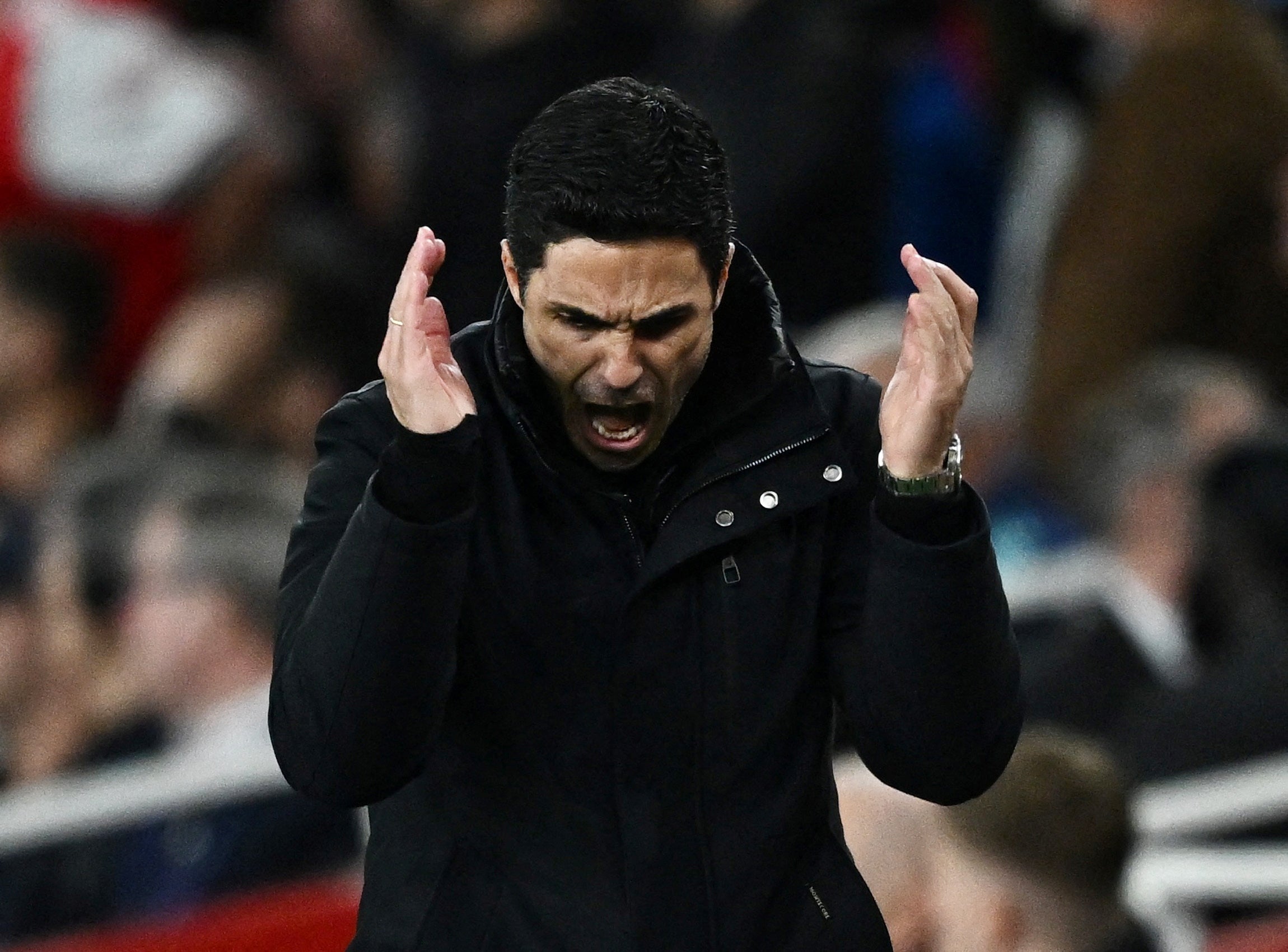ARTICLE AD BOX
Mikel Arteta inherited a team in the wrong half of the Premier League. A year later, they were 15th. As Arsenal are in their first Champions League semi-final for 16 years, their manager can testify that the path forward can be long and winding and sometimes seem to involve going backwards.
Eliminating Real Madrid seemed a giant step forward, especially given the emphatic nature of home and away triumphs, of Declan Rice’s twin man-of-the-match performances, of how, one William Saliba error apart, Arsenal shut out European football’s resident superpower.
A home defeat by Paris Saint-Germain did not initially appear a platform to reach just a second Champions League final in their history. Overturning that 1-0 deficit, turning their trip into Paris into an evening destined for a place in Arsenal folklore, and progressing would be both obvious and dramatic. Don’t, and the verdict would depend in part on the manner of Arsenal’s exit: heroic or resounding, narrowly overcome or clearly beaten.
If the ultimate assessment can only come at the end of Arteta’s reign – if not still later, given the long-term impact – there are broader questions. Are Arteta’s Arsenal still on an arc of progress, even if it is neither linear nor smooth? If so, what is their destination?
For a couple of years, the answer did not seem to lie in Europe, even though it is an achievement in itself to have changed Arsenal from Champions League exiles to a club who could again become fixtures in the knockout stages.
But their pursuit of Manchester City suggested the end goal lay in a first Premier League title since the Invincibles’ 2004 crown. Significant breakthroughs – from eighth to fifth to second – were then followed by a quest for incremental improvements.

Yet this season has suggested marginal gains have given way to multiple lapses. Arsenal may yet finish third in a two-horse race and if, in some respects, the eventual league position is not the crucial factor, the manner of it is damning.
Arsenal are entitled to plead misfortune with some of their injury issues, and the probability is that they will not be as afflicted next season. They had grievances, with varying degrees of justification, about some decisions.
Yet, 15 points behind Liverpool, it is ever harder to argue they are the determining factors. Arsenal will finish with clearly their lowest points and goal tallies in three seasons. A host of draws and a total of 21 points dropped from winning positions have spoken to a sloppiness – and a lack of the ruthlessness Arteta covets.
Domestically, anyway, too few players have advanced: Jurrien Timber has, after his debut year in England was ruined by injury, as have the precocious pair of Myles Lewis-Skelly and Ethan Nwaneri, while Mikel Merino has proved a useful stand-in striker, but only after being signed as a midfielder. Others – Bukayo Saka, Kai Havertz, Saliba, Gabriel Magalhaes, David Raya, Thomas Partey, Rice – have had their spells of fine form, some curtailed by injury but without it meaning the team reached a new level.

And so the heirs to City, the next champions in waiting, were bypassed. What seemed their opportunity instead became Liverpool’s; Arne Slot has called it an “off-year” for Pep Guardiola’s side, but Arsenal did not capitalise. None of which will matter if they become Champions League winners instead.
It would be mitigation, too, if instead of triumphing this year, Arsenal do next year, whether in England or Europe. Arteta’s team is young enough. There are reasons to believe that, with a couple of astute additions, they could acquire an added edge; particularly, many a fan hopes, extra firepower in the shape of a striker.
But a side’s peak can come with glory or when falling just short. Arteta’s friend and former PSG teammate Mauricio Pochettino took Tottenham to one Champions League semi-final and one final, but it was the end of a journey rather than the penultimate step.
As Arteta’s lone major trophy, the 2020 FA Cup, came with a different group, there is a case for saying the Arsenal side of the last few years rival that Tottenham team for an unwanted tag: the finest team the Premier League has produced not to win major silverware.

Yet, anyway. The context is a factor. Jurgen Klopp’s Liverpool would have won more but for City. Their persistence paid off after Klopp’s departure, with Slot the beneficiary. For Arsenal, too, there could be the question of whether competing over several seasons brings a reward, or if this year has actually shown a regression, lacking the consistency required to become champions.
An iron defence and a capacity to rouse themselves on big nights can instead equip a team to win a knockout competition. So it felt on two heady nights against Real. Now Arsenal need another against PSG – to progress, and for the arc of their progress.









 English (US) ·
English (US) ·